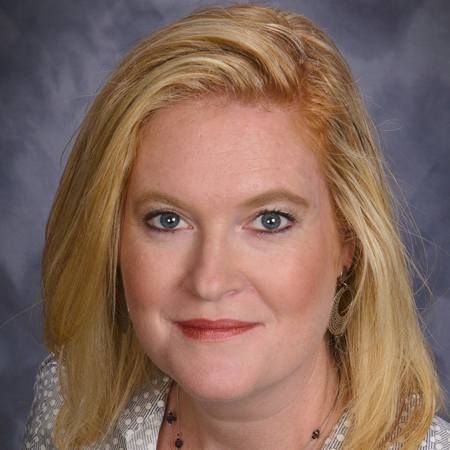Sessions
Counseling Strategies & Resources

Counselor's Survival Kit
Julia Cook
Award-Winning Author of Nearly 100 Children’s Book on Social Development

Mentoring Circles for Girls
Tracie Berry-McGhee
International Speaker, Author, Creator of SistaKeeper

Counseling & Technology
Dr. Russ Sabella
Professor, Author, Creator of SchoolCounselor.com

Teaching Mindfulness
Joree Rose
Author, Mindfulness & Mindset Coach

Collaborative Problem Solving
Dr. J Stuart Ablon
Harvard Professor, Founder of Think:Kids, Author of Changeable and Treating Explosive Kids

Teaching Self-Regulation
Brad Chapin
Popular Author, Leading Authority on Self-Regulation

Engaging Boys
Steph Jensen
International Speaker, Award-Winning Author & Consultant

Gender-Based Learning Differences
Dr. Michael Gurian
Bestselling Author of 32 books including Boys & Girls Learn Differently
Counseling Strategies & Resources
Pre-Conference / Main Conference – Thursday, August 6, 2020
-
Pre-Conference Registration 6:30 am – 8:30 am
-
Pre-Conference Sessions 8:30 am – 11:30 am
Marquita Blades, Ed.D.: POWARRful Teaching Strategies for Increasing Student Engagement & Decreasing Disciplinary Issues*
Tracie Berry-McGhee, M.Ed., LPC: Girl Drama is Real!*
Mike Paget, M.Ed.: Positive Behaviorial Supports for Students Who Are Wired Differently*
Stephanie Jensen, MS, LPC: Lost Boys Strategies to Help Educators Navigate the World of Boys for Academic Success, Part 2*
*Please note: An additional fee is charged for each pre-conference session. -
Lunch (on your own) 11:30 am – 1:00 pm
-
Pre-Conference Sessions 1:0 pm – 4:00 pm
Brad Chapin, MS, LCP, LMLP: Teaching Self-Regulation: Avoiding Classroom Chaos*
Robert Jackson: Salvaging Our Sons: Helping Educators Reach, Teach & Empower Young Men*
Mike Paget, M.Ed.: Disruptive Behavior Disorders: Insights and Strategies That Will Improve Outcomes for Students with ODD, CD & IED*
Susan Coleman, Ph.D.: How to Walk the Talk: The Journey to Improving School Climate & Student Engagement through Social-Emotional Learning*
*Please note: An additional fee is charged for each pre-conference session. -
Welcome / Plenary Session 4:15 pm – 5:00 pm
Plenary Session Speake: Dr. J. Stuart Ablon
Friday, August 7, 2020
-
Plenary Session 8:30 am – 9:30 am
Plenary Session Speaker: Robert Jackson
-
Keynote & Breakout Sessions 10:00 am – 11:00 am
-
Keynote & Breakout Sessions 11:15 am – 12:15 pm
-
Lunch (on your own) 12:15 pm – 1:45 pm
-
Keynote & Breakout Sessions 1:45 pm – 2:45 pm
-
Keynote & Breakout Sessions 3:00 pm – 4:00 pm
-
Panel Discussion 4:10 pm – 5:00 pm
25 in 50 Panel Discussion
Saturday, August 8, 2020
Counseling Strategies & Resources
Catava Burton, Ed.S.: Trauma: NOT a D-Code Drama
Wednesday, August 5th, 5:00 pm – 8:00 pm
Adolescents are more susceptible to adverse childhood experiences (psychological trauma) during what Erikson described as the identity versus role confusion stage. Pubescent brains are pruning; trauma or toxic stress can substantially disrupt brain development, changing how they respond to perceived threats. In schools, student’s trigger reactions (fight, flight or freeze) are categorized as disruptive, defiant, and/or disrespectful (D-Codes) resulting in more punitive disciplinary consequences.
Learning Objectives:
- Develop an understanding of how trauma imprints on the brain
- Analyze how student responses can present as defiance/disrespect
- Gain research/evidence-based, non-punitive disciplinary responses to subjective behaviors
Brian Dinkins: Defiant, Manipulative & Attention-Seeking Students: How to Unlock Their Potential & Survive the Process
Wednesday, August 5th, 5:00 pm – 8:00 pm
Working with difficult, demanding, and disruptive students is not a new challenge for educators. However, there are current concerns being voiced regarding the changing nature and intensity of the behaviors of these students. Some educators are reporting increases in selfish, manipulative and hostile behaviors while others are noticing more students who are overly anxious and/or difficult to engage. Even well-seasoned, award-winning master educators can sometimes have their “feathers ruffled” by certain students in certain situations.
Responsibility-Centered Discipline is designed to assist all educators with identifying and addressing challenging student behaviors that affect the academic and behavioral progress of the students with whom they work. This power-packed seminar will provide you with up-to-date insights and strategies for reaching and helping those young people who seem to evoke the strongest feelings of frustration, hurt and sometimes discouragement in professional educators.
Learning Objectives:
- Implement do’s and don’ts to address specific behaviors
- Gain integral key strategies for migrating from an obedience-centered approach to a responsibility-centered approach
- Develop innovative ways to support positive behavior
- Apply strategies for preventing the escalation of difficult behavior
- Identify the underlying causes of difficult behaviors in students
Jessica Sinarski, LPCMH: Light Up the Learning Brain
Wednesday, August 5th, 5:00 pm – 8:00 pm
Session Description Coming Soon!
Stephanie Jensen, MS, LPC: Lost Boys: Strategies to Help Educators Navigate the World of Boys for Academic Success! Part 1
Wednesday, August 5th, 5:00 pm – 8:00 pm
Boys are held back in school twice as often as girls. Boys also get expelled from preschool nearly five times more often than girls, and they are diagnosed with learning disorders and attention problems at nearly four times the rate of girls. Boys are more likely to dropout of school, and make up only 43 percent of college students. Millions of boys are being lost along the path to academic success and career achievement in today’s knowledge economy. Teacher bias regarding behavior, rather than academic performance, penalizes boys as early as kindergarten.
On average, boys receive lower behavioral assessment scores, and those scores affect teachers’ overall perceptions of boys’ intelligence and achievement. Rather than penalize boys’ high energy – as traditional classroom methods often do – successful teachers are learning to take advantage of male liveliness, curiosity and thirst for competition. Unless educators stop to consider whether traditional methods are working for both genders, boys will continue to get the short end of the educational stick.
This session will helps educators understand the structural, chemical and processing differences between boys’ and girls’ brains. It helps educators support boys’ developmental needs, while teaching them social/emotional competencies. Attendees will discover innovative strategies, as well as group and individual interventions, to help boys achieve their highest academic potential.
Learning Objectives:
In this session, you will learn how to:
- Explain how boys’ brains work including the chemistry and structure.
- Identify the differences in the ways girls and boys focus.
- Recognize the role of hormones, specifically testosterone and dopamine
- Demonstrate classroom strategies to support boys’ developmental needs
- Contrast the difference between natural aggression and bullying.
Marquita S. Blades, Ed.D.: POWARRful Teaching Strategies for Increasing Student Engagement & Decreasing Disciplinary Issues
Thursday, August 6th, 8:30 am – 11:30 am
Creating a highly-engaging & rigorous classroom while trying to manage disciplinary issues can be difficult. In this workshop, participants will learn several effective strategies that can be used to create an interactive classroom that supports increased student engagement while
minimizing student disciplinary issues. This is not a sit-and-get workshop. Bring your best energy, because we’ll be working through these strategies, just as you will be using them with your students!
Learning Objectives:
- Learn how to use academic data to build relationships with all students
- Decrease disciplinary issues in the classroom by creating a more engaging learning environment
- Gain several strategies for increasing student engagement while maintaining rigor and addressing the needs of all learners
Tracie Berry-McGhee, M.Ed., LPC: Girl Drama is Real!
Thursday, August 6th, 8:30 am – 11:30 am
In this session, we will explore how to use social-emotional learning circles for girls to impact social aggression and decrease the factors that motivate relational aggression. We will also offer interactive tools used in SEL circles to create a safe space through the use of poetry, music, and therapeutic mentoring to develop trauma-free spaces. Educators, Counselors and administrators will understand the benefits of facilitating gender-specific programming that promotes strength and resiliency in girls, increasing literacy while also improving their attitude toward school, home and community while reducing depression.
Mike Paget, M.Ed.: Positive Behavioral Supports with Students Who Are Wired Differently
Thursday, August 6th, 8:30 am – 11:30 am
Disorganization, irritability, intense moods, emotional escalation, anxiety, perfectionism: these are some of the Top 10 Challenges faced by students who are “Wired Differently” – and by their teachers. Supporting the increasing number of students (now estimated at 1 in 5) with emotional and behavioral challenges requires an array of practices beyond traditional discipline practices.
During this session, author and nationally known education consultant Mike Paget will provide an overview of some of the emotional and behavioral challenges confronting these neuro-diverse students. Increasingly, teachers, counselors, administrators and other educators are realizing that success for these students demands an emphasis on prevention, positive skill-building and other practical supports (including practices at the universal, secondary and tertiary levels) – and that these supports actually improve the behavior of all students. Positive Behavior Interventions & Supports (PBIS) is one of the more prominent practices, but whether or not your school has implemented PBIS, this session will give helpful insights into the unique characteristics of these students and provide lots of practical supports that will help all students – but particularly those who are “Wired Differently.”
Learning Objectives:
- Discover the importance of adult attitudes & behaviors when using positive behavior supports
- Explore how primary, secondary and tertiary behavior plans can be best employed with various mental/emotional/behavioral concerns
- Understand the 8 elements of successful classroom management
- Discover tools to help teach social skills to students who are “Wired Differently” within the paradigm of positive behavior supports
- Understand the importance of collaboration between families, schools and community resources
Stephanie Jensen, MS, LPC: Lost Boys: Strategies to Help Educators Navigate the World of Boys for Academic Success! Part 2
Thursday, August 6th, 8:30 am – 11:30 am
Boys are held back in school twice as often as girls. Boys also get expelled from preschool nearly five times more often than girls, and they are diagnosed with learning disorders and attention problems at nearly four times the rate of girls. Boys are more likely to dropout of school, and make up only 43 percent of college students. Millions of boys are being lost along the path to academic success and career achievement in today’s knowledge economy. Teacher bias regarding behavior, rather than academic performance, penalizes boys as early as kindergarten.
On average, boys receive lower behavioral assessment scores, and those scores affect teachers’ overall perceptions of boys’ intelligence and achievement. Rather than penalize boys’ high energy – as traditional classroom methods often do – successful teachers are learning to take advantage of male liveliness, curiosity and thirst for competition. Unless educators stop to consider whether traditional methods are working for both genders, boys will continue to get the short end of the educational stick.
This session will helps educators understand the structural, chemical and processing differences between boys’ and girls’ brains. It helps educators support boys’ developmental needs, while teaching them social/emotional competencies. Attendees will discover innovative strategies, as well as group and individual interventions, to help boys achieve their highest academic potential.
Learning Objectives:
- Explain how boys’ brains work including the chemistry and structure.
- Identify the differences in the ways girls and boys focus.
- Recognize the role of hormones, specifically testosterone and dopamine
- Demonstrate classroom strategies to support boys’ developmental needs
- Contrast the difference between natural aggression and bullying.
Brad Chapin, MS, LCP, LMLP: Teaching Self-Regulation: Avoiding Classroom Chaos
Thursday, August 6th, 1:00 pm – 4:00 pm
When a student can’t read, we teach him how. When a student struggles with algebra, we give her skills to help. When a student has trouble behaving, what do we do?
Self-Regulation skills can be taught. Not all students have the same ability to regulate emotions, behaviors and responses to difficulties. And those who have not mastered Self-Regulation can be very disruptive to instruction time. When educators include lessons on Self-Regulation as part of the curriculum, everyone can benefit from the training on how to recognize triggers and how to manage responses to them. Rather than trying to modify behavior and/or removing the stimuli that results in unacceptable behavior, Self-Regulation training gives students control over their responses.
During this insightful session Brad Chapin will share strategies that have helped students develop skills necessary for success in academic performance, relationships and overall wellness. Brad will demonstrate that personal responsibility for behaviors and self-discipline are stronger predictors of academic success than IQ.
Learning Objectives:
- Master engaging approaches to use with individual students and the entire class that you can employ immediately.
- Learn how to give students the tools to manage their behavior by recognizing triggers and controlling how they respond.
- Explore the 3 skill-training areas.
- Discover how to target the core and address a broad spectrum of behaviors and performance issues.
- Understand how Self-Regulation skills affect social interactions, academic and athletic performance, aggressive behaviors, physical wellness and future happiness and success.
- Learn how to incorporate Self-Regulation training into your classroom curriculum.
Robert Jackson: Salvaging Our Sons: Helping Educators Reach, Teach & Empower Young Men
Thursday, August 6th, 1:00 pm – 4:00 pm
This workshop will address issues that all male students face, as well as issues related to adverse childhood experiences (ACEs) and/or trauma — including violence and divorce, incarceration or death of parents. How males process stressors influences their behavior, motivation and desire to learn. All students experience negative moments inside and outside of school, however boys process them differently.
During this interactive session, administrators and educators will gain insight into how to help male students overcome life’s challenges with ready-to-use strategies.
Learning Objectives:
- Identify key components for motivating males.
- Discover proven strategies for engaging and motivating boys who have experienced trauma and/or adverse childhood experiences (ACEs)
- Demonstrate key relationship, communication and community-based strategies to reach all male students
- Recognize underlying causes of male student misbehavior and utilize the de-escalation tactics
Mike Paget, M.Ed.: Disruptive Behavior Disorders — ODD, CD & Intermittent Explosive Disorder
Thursday, August 6th, 1:00 pm – 4:00 pm
You know those students who make your day super difficult? Those who exhibit an ongoing pattern of uncooperative or hostile actions – such as temper tantrums, fighting, cruelty and defiance? Typically educators slip into a pattern of coercion and punishment. Non-disruptive peers start to reject them – isolating them and driving them to associate with other disruptive students. This path can lead to academic difficulties, poor relationships, substance abuse, delinquency and crime. But, these students may actually have a Disruptive Behavior Disorder – Oppositional Defiant Disorder, Conduct Disorder and/or Intermittent Explosive Disorder.
In this session, author and behavioral consultant Mike Paget, M.Ed. will share effective practices for working with students challenged by these disorders in the classroom. He will examine each of the disorders – ODD, CD and IED – and connect the dots between the three. What does the student challenged by ODD think and feel about authority figures? Mike will share practical accommodations that will reduce confrontation with these students. Attendees will learn why getting tough and zero tolerance do not work with students challenged by CD and IED. Discover how educators can avoid power struggles and not take the behavior personally.
Learning Objectives:
- Know the risk factors for and symptoms of Oppositional Defiant Disorder, Conduct
- Disorder and Intermittent Explosive Disorder.
- Discover classroom accommodations and strategies for dealing with Disruptive Behavior Disorders.
- Gain strategies for de-escalating confrontational situations in your school or classroom.
- Learn why it’s important to avoid lectures, interruption, yelling and arguing.
- Learn to use more successful approaches including brevity, listening, neutral tone of voice, honesty and humor.
- Discover how to build self-management through strength coaching, generosity and re-framing.
Susan Coleman, Ph.D.: How to Walk the Talk: The Journey to Improving School Climate & Student Engagement through Social-Emotional Learning
Thursday, August 6th, 1:00 pm – 4:00 pm
Put theory into action! In this session, participants will learn a variety of strategies to make connections with students and improve school climate. This journey will take participants through past and present discipline practices and the impact on school culture. Restorative practices and the intersection of CASEL’s social/emotional learning competencies will also be discussed. Finally, participants will explore how districts can set up systems of support to keep students in school and engaged with true stories of successful implementation practices.
Learning Objectives:
- Develop an understanding of the unintended consequences of punitive discipline
- Explore the connections between Restorative Practices and Social Emotional Learning Competencies
- Create an action plan to bring back home with practical implementation strategies to change school culture
Counseling Strategies & Resources
School Climate & Culture Forum Atlanta

To Be Announced
Coming Soon!
School Climate & Culture Forum Atlanta
Coming Soon!
Pre-Conference Sessions for the School Climate & Culture Forum Atlanta will take place on June 24 & 25. The main Conference will begin on June 26, 2020 at 8:30 am.
School Climate & Culture Forum Atlanta
Coming Soon!
School Climate & Culture Forum Atlanta
Coming Soon!
School Climate & Culture Forum Las Vegas

To Be Announced
Coming Soon!
Coming Soon!
School Climate & Culture Forum Las Vegas
Pre-Conference Sessions for the School Climate & Culture Forum Las Vegas will take place on July 6 & 7. The main Conference will begin on July 8, 2020 at 8:30 am.
School Climate & Culture Forum Las Vegas
Coming Soon!
School Climate & Culture Forum Las Vegas
Coming Soon!
Innovative Schools Summit
Atlanta
June 24-28
School Climate & Culture Forum
At-Risk & Struggling Students Conference
School Discipline Conference
Girl Bullying & Empowerment Conference
Social-Emotional Learning Forum
Las Vegas
July 6-10
School Climate & Culture Forum
Innovative Teaching Strategies Conference
School Discipline Conference
Boy Brains & Engagement Conference
Wired Differently Conference: Trauma Informed Schools
NextGen School Safety Conference
Orlando
August 5-8
School Climate & Culture Forum
Boy Brains & Engagement Conference
School Discipline Conference
Innovative Teaching Strategies Conference
Counseling Strategies & Resources Conference
San Antonio
November 12-15
At-Risk & Struggling Students Conference
School Discipline Conference
Innovative Teaching Strategies Conference
Girl Bullying & Empowerment Conference
Social-Emotional Learning Conference
